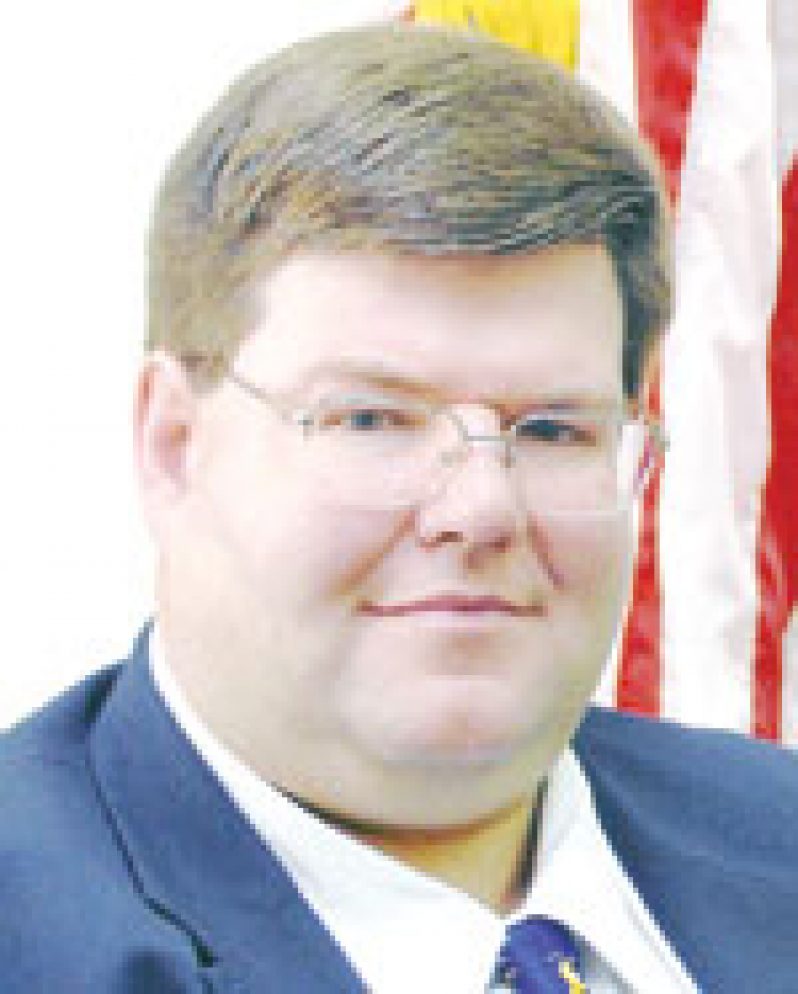Charge d’Affaires of the US Embassy in Georgetown, Bryan Hunt, has dismissed suggestions that there is tension between the Guyana government and the United States over the latter’s 2013 State Department Trafficking in Persons (TIP) Report, pointing out that they are really in partnership with one another and not in conflict.
 This year Guyana was downgraded from Tier 2 to the Tier 2 Watch List.
This year Guyana was downgraded from Tier 2 to the Tier 2 Watch List.
“I think we actually have a fairly good record of partnership on that issue,” Hunt told this newspaper on Friday in an exclusive interview, adding that only recently he had spoken alongside Minister of Home Affairs Clement Rohee and Minister of Human Services and Social Security Jennifer Webster at a workshop on human trafficking.
He conceded that the Guyana government was “not happy” with the downgrade. Subsequent to the report’s release this year, the Donald Ramotar-led administration denounced its findings and angrily declared that it would no longer cooperate with the US government’s survey for information on human trafficking.
Hunt, however, sought to downplay the Guyana government’s ire, saying: “Reasonable people can disagree about whether or not Guyana should sit on Tier 2 or Tier 2 Watch List. We take one position, the Government of Guyana has a different one. I respect their position.”
According to the new Deputy Chief of Mission, “the crux of the matter on human trafficking isn’t about really where Guyana ranks on the report; it is about what is being done collectively to address the issue.”
Hunt admitted that the United States’ “record on human trafficking is far from perfect.
“We have taken a number of steps in our own country to try to address it [but] I wouldn’t say that everything we’ve done has been effective. We, like Guyana, like most other countries, really are making efforts to try to improve the situation, so I think this is an issue on which where we (the U.S. and Guyana) are really in partnership with one another, not in conflict.”
The diplomat acknowledged that “the Guyana government has taken in the last few months a number of, I think, very important steps to begin to address the issue, to begin to arrest and prosecute those who are responsible for human trafficking in the country.”
At the human-trafficking workshop held last week, Hunt had specifically lauded the Guyana government for its successful prosecution of an Essequibo disco owner, and a couple on charges of human trafficking.
Hunt also hailed the work that the Ministry of Human Services and Social Security“has been doing in partnership with civil society and the international community to try to raise awareness about the issue, to try to help to get people out of dangerous situations in which they find themselves, to try to do more to get communities to report instances of trafficking.
“Hopefully, with their (the government’s) efforts this year, assuming they’re sustained and continued, they’ll move back up to Tier 2,” he reasoned.
When pressed as to whether the U.S.’s pronouncements on Guyana’s performance on human trafficking amounts to interference in domestic affairs, the Charge d’Affaires said: “I don’t think it’s really a question of international sovereignty when we’re talking about human trafficking.”
Human trafficking is an issue that has been recognised as being international in nature and it is not a purely domestic issue, not even for the United States, he said. Pointing to the Palermo Protocol to Prevent, Suppress and Punish Trafficking in Persons (especially women and children), he noted that human trafficking is something that has been clearly defined and outlawed by the international community. At least 157 states have ratified the protocol.
Seeking to assert that the State Department Human Trafficking report is not a mechanism for meddling in countries’ affairs, he explained that like the State Department’s Human Rights report and International Religious Freedom report, the Trafficking in Persons report is “fundamentally” a legislatively mandated report from the executive branch of the US government to its legislative branch, the Congress. The US Congress uses the State Department’s assessment of each country’s efforts to adhere to the Palermo protocol, he said, as a basis to decide whether or not to extend trade benefits or other incentives to these countries.
When quizzed on the publicity which accompanies the release of each year’s US report on human trafficking, Hunt contended: “All such correspondence in our system is public; we share that report broadly, internationally, we make it available to the media, we make it available to foreign governments to use as they see fit. Because we believe in freedom of information, we don’t think these sorts of things should be hidden in a drawer somewhere.”
When asked why the US government’s assessment of Trafficking in Persons is given prominence over similar reports prepared by the International Organization for Migration, NGOs and other civil society groups, he opined: “I’d like to think it’s because over the last 10 years we’ve been doing this report, people have seen that the effort that’s put into it generally results in a product which is accurate and useful and that’s why people continue to cite the US report as one of the most important measures of how countries are doing on human trafficking.”




.jpg)











